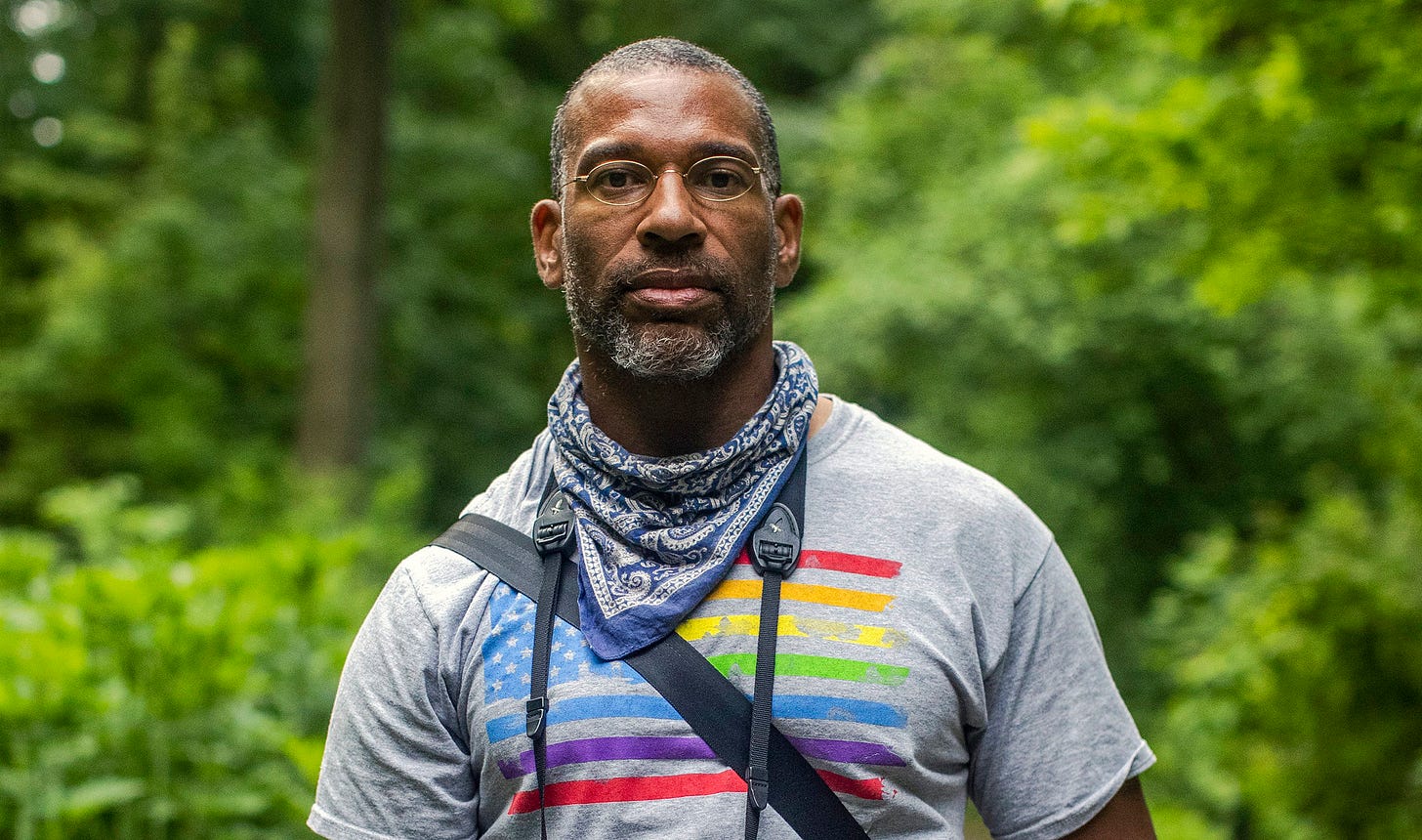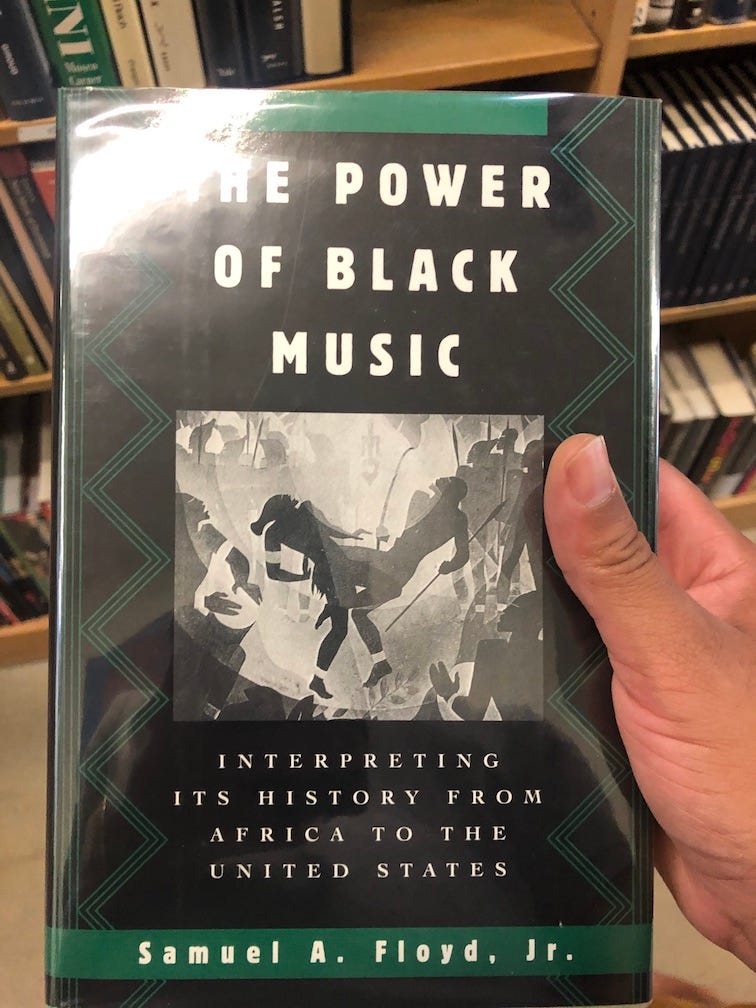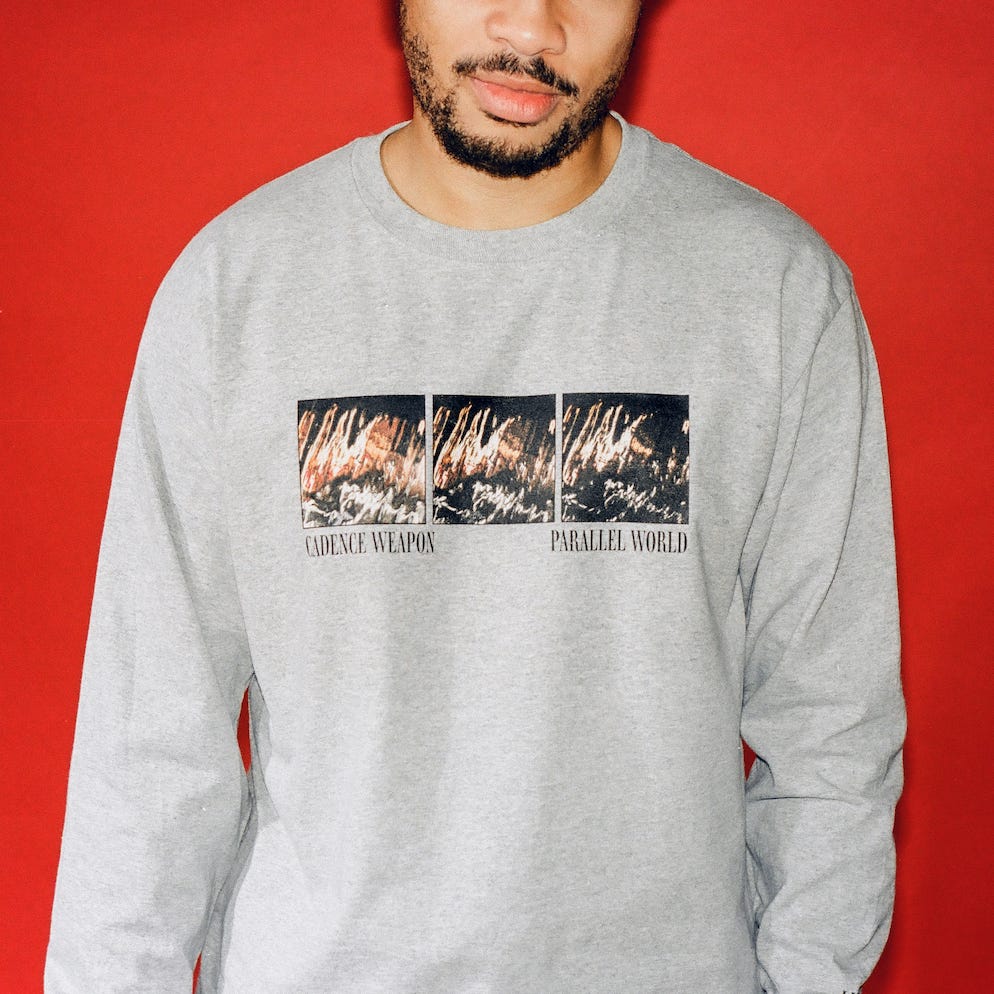The second single from Parallel World is called “Eye To Eye” and it’s a song about racial profiling. One of the main inspirations for the song was the incident in Central Park in May 2020 where a white woman named Amy Cooper tried to weaponize the police against black birdwatcher Christian Cooper. As a black person in North America, it can often feel like you are seen as guilty until proven innocent. Every time I walk into a business, I notice the suspicion and apprehension emanating from the clerk as they track me with their eyes for the entire time I’m there. In the public sphere, I’m usually of two minds simultaneously: how I perceive myself and how I appear to others as a black man. W.E.B. Du Bois coined the term “double consciousness” in 1903’s The Souls of Black Folk to describe the curious duality of African-American life:
“It is a peculiar sensation, this double-consciousness, this sense of always looking at one’s self through the eyes of others, of measuring one’s soul by the tape of a world that looks on in amused contempt and pity. One feels his two-ness, — an American, a Negro; two souls, two thoughts, two unreconciled strivings; two warring ideals in one dark body, whose dogged strength alone keeps it from being torn asunder. The history of the American Negro is the history of this strife, — this longing to attain self-conscious manhood, to merge his double self into a better and truer self. In this merging he wishes neither of the older selves to be lost. He does not wish to Africanize America, for America has too much to teach the world and Africa; he does not wish to bleach his Negro blood in a flood of white Americanism, for he believes—foolishly, perhaps, but fervently—that Negro blood has yet a message for the world. He simply wishes to make it possible for a man to be both a Negro and an American without being cursed and spit upon by his fellows, without having the doors of opportunity closed roughly in his face.
When I was writing this song, I thought about the Theriault brothers (one of them an off-duty police officer) chasing and attacking Dafonte Miller in Whitby, Ontario, beating him to the point where he was blinded in one eye. They suspected him of breaking into their parents’ truck and took the law into their own hands. An eye for an eye. Michael Theriault received a slap on the wrist from the courts: nine months in prison with a year probation to follow. I also thought about journalist Desmond Cole’s landmark 2015 Toronto Life essay “The Skin I’m In” that detailed his experiences of being carded and interrogated by police in Ontario at least 50 times, obliterating the lie that racism in Canada doesn’t exist.
Desmond’s article was particularly disturbing to me because it put a name to an experience I had when I was living in Montreal. I was leaving La Brique after a birthday party one quiet night. On the way around the corner of Beaubien, I briefly sat down to chat with my friend who is a white woman. I looked up and we were suddenly surrounded by police. That stretch of Beaubien was primarily industrial at the time so it wasn’t as if some neighbours called the cops on us. It seemed that maybe they had been randomly patrolling the area.
A policewoman aggressively asked me what I was doing there and I said we had just left a birthday party. The cops completely ignored my friend. The officer accused me of drinking outside and asked for my ID. I didn't have it with me because I lived only a block away on Van Horne. I was particularly fearful because this was around the time of "Agent 728" Stéfanie Trudeau, the notoriously violent female Montreal police officer who was suspended and convicted of assault after years of excessively brutal conduct. My white roommate Jane came back and asked if they were charging me with anything. The cops said no and Jane said "Okay, so we're going" and then we left. I often wonder what might have happened to me had I been alone.
Near the end of “Eye To Eye,” I reference an idea I learned from a book called The Power of Black Music: Interpreting Its History from Africa to the United States by Samuel A. Floyd Jr. The book mentions the concept of African cultural memory, which inspired me to write these lyrics:
“Thin line between the victim and the witness
I feel it from a distance, feeling defenseless”
This is how I felt after the murders of George Floyd, Breonna Taylor and D’Andre Campbell. This is how I feel whenever a rapper is murdered, whenever there’s a “police-involved shooting” of an unarmed black person going through a mental health episode. I can feel the pain with great depth. When Toronto rapper Houdini was murdered last year, the Toronto Sun put this on their front cover:
That hit me hard. This is how they see us. To the mainstream media in Canada, our lives are a joke. It’s the modern equivalent of the racist caricatures of the Jim Crow era. Not only is it distasteful and humiliating but it also serves to further dehumanize us in the eyes of the average person picking up the paper at Tim Hortons. This is the systemic treatment of black people in North America that leads to the suspicion I get at the corner store or when I walk the streets of the city at night. Images like that newspaper cover encouraged me to write about racism more explicitly on my new album. If I can make an impact in my small corner of the world and change the perceptions of even a few people, perhaps it can help to balance things out a little.

Updates
I recently made a playlist of songs that I’m into called A Better Future: Selections by Cadence Weapon - updated weekly. I was featured on Dave Cowen’s newsletter Shuffle Synchronicities this week writing about random songs from the playlist, you can check that out here.
My interview with Myseum Of Toronto in response to the article I wrote for Hazlitt about Toronto’s Little Jamaica dropped recently:
Click here to pre-order my upcoming album Parallel World on silver mirror vinyl as well as the Parallel World T-Shirt designed by Scott Pilgrim
You can find Cadence Weapon on Twitter, Instagram, Spotify, Twitch and Bandcamp.










